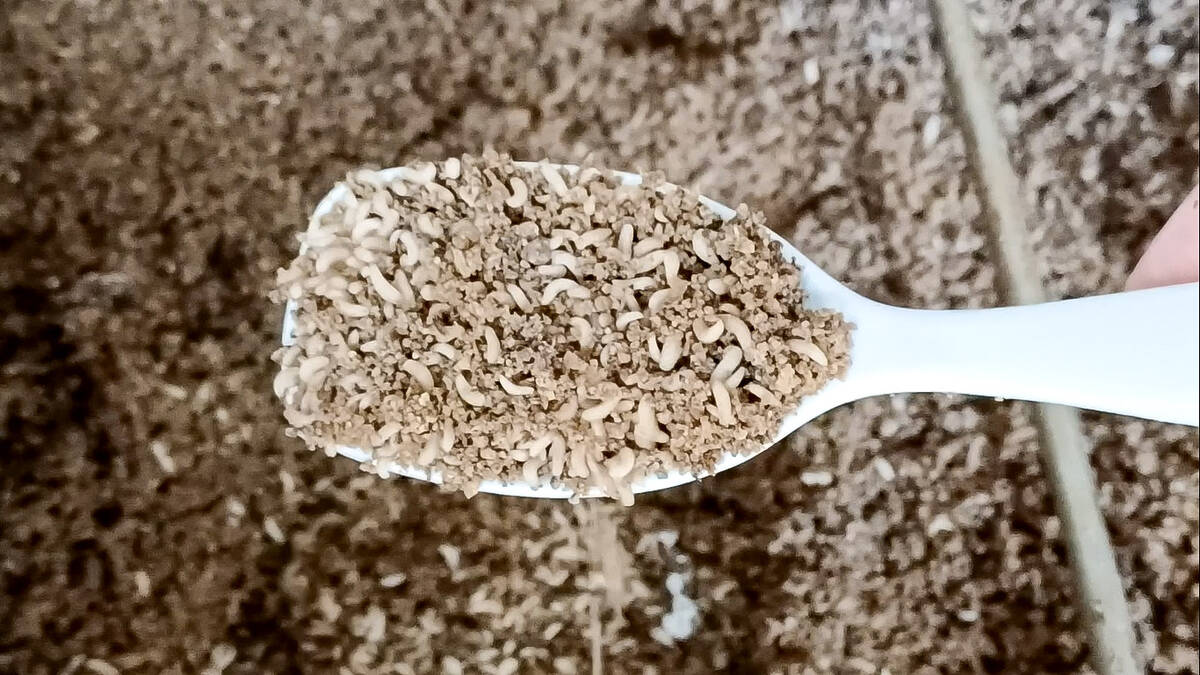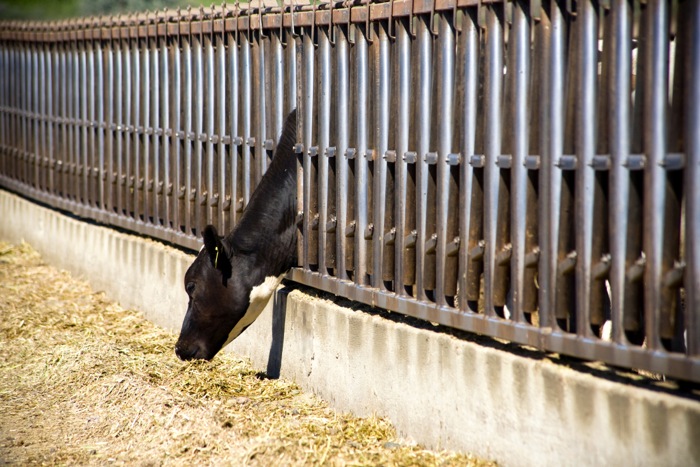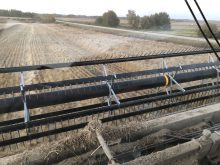This year’s Manitoba Forage and Grasslands Association Regenerative Ag Conference had something different on the schedule — a movie night.
The association was granted Manitoba’s first screening of the documentary “Common Ground,” a follow up to “Kiss the Ground,” which debuted on Netflix in 2020.
Like that one, “Common Ground” marketed itself as a hopeful alternative to current climate change rhetoric, and it uses regenerative agriculture as its vehicle.
Read Also

Bug farming has a scaling problem
Why hasn’t bug farming scaled despite huge investment and subsidies? A look at the technical, cost and market realities behind its struggle.
Not all farmers will be happy with what the film says about conventional agriculture. In particular, its approach to glyphosate and the links it makes between the herbicide and human health is sure to raise some producers’ blood pressure.
Other farmers or farm groups, who have either bought into regenerative agriculture or promote it, might be leery of division. They might be worried that, in a policy landscape where farmers should pull together, this sort of messaging gets people’s backs up so they dig in their heels.
Even most regenerative experts don’t suggest that all of agriculture should go cold turkey off synthetic inputs.
On the conference’s second day, a farmer came to the mic during a fireside chat with Understanding Ag’s Blain Hjertaas and Jon Lundgren, director of the EcDysis Foundation and one of those who appear in “Common Ground.”
During the movie, Lundgren said his study on the impacts of pesticides had punitively impacted his career. The chat, to that point, was unfriendly to glyphosate use.
The farmer at the microphone said he had been all-in on regenerative agriculture. He had discarded all extra chemical and no longer sprayed it. Then, in 2021, he had a wreck. Weeds took over.
Lundgren and Hjertaas responded that glyphosate reduction should be slow and appropriate to protect a farm’s production.
The grazing sector will likely have little to complain about from the film. It is, hands down, the biggest agricultural winner.
“Common Ground” pushes against the idea that going meatless will save the planet. Cows are not the methane-burping climate change drivers here; they’re part of the answer – as long as they’re on pasture.
The film presents the basics of rotational grazing, which it takes pains to note is linked to historic bison movements and traditional Indigenous knowledge. Viewers hear how much carbon Gabe Brown, a North Dakota farmer and proponent of regenerative ag, is sinking per acre into his land. On the other end of continent, watchers are told that cattle are a vital tool for reclaiming desert.
Feedlot operators and meat alternative companies will probably be less kind toward the film.
‘Factory farms’ were described as part of a broken food system, while meat alternatives were characterized as over-processed and a far cry from the environmental product of choice.
It’s important to recognize that farmers are not the movie’s intended audience.
“Common Ground” serves to introduce some of the topics that agriculture has been trying to push into public awareness for years; things like nitrogen fixation, water infiltration, soil microbiology, why cover crops are a thing, how healthy soils form, farm biodiversity and carbon sequestration.
This time, it’s not an academic with a spreadsheet of study data saying it, or a farm lobby suit who the public might distrust as having a vested interest.
It’s being said by Woody Harelson, Jason Momoa and Rosario Dawson. It’s cinematic and gives the same docu-entertainment vibes as the British nature documentary series “Blue Planet.”
Even the sections with which conventional producers will disagree never paint any farmer as a villain. Agrichemical companies don’t come out nearly as well.
Long-term, sustainable farm profitability is one of the talking points.
“Common Ground” and “Kiss the Ground” are not perfect films for every facet of agriculture. They’re not meant to be. But if they move the needle on the number of people who see farmers as partners rather than variables to control, that can’t be dismissed.
















